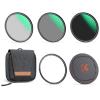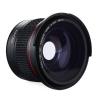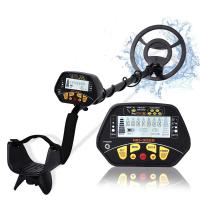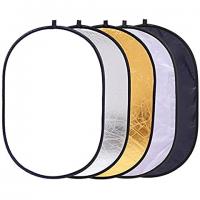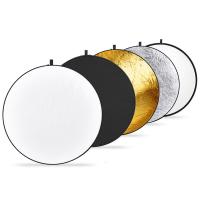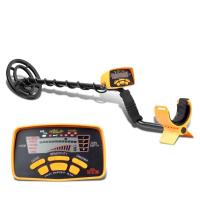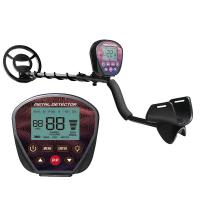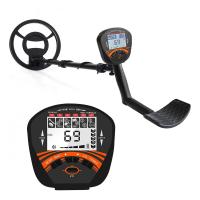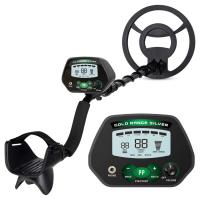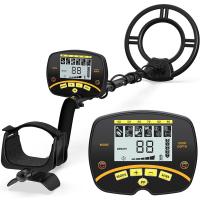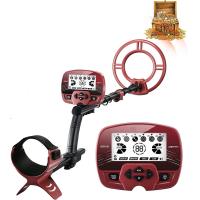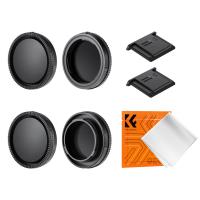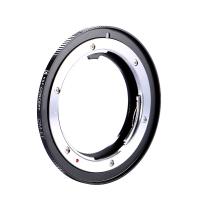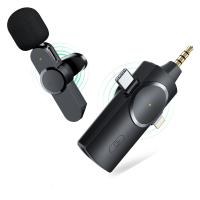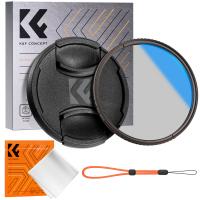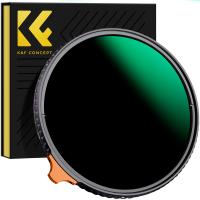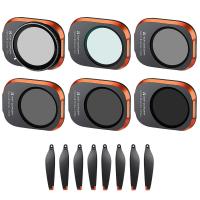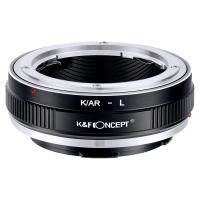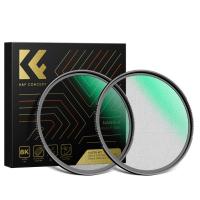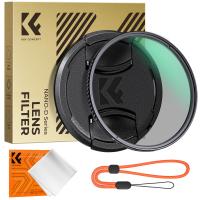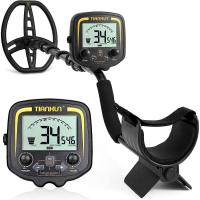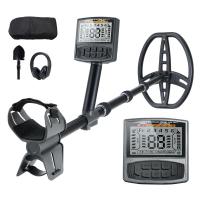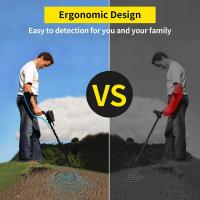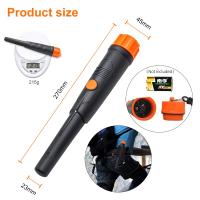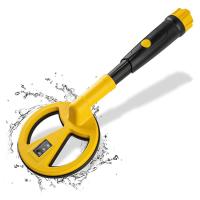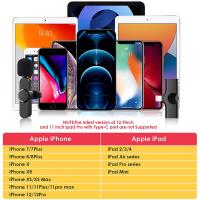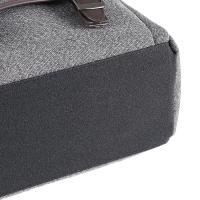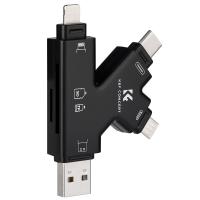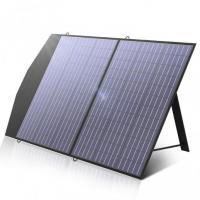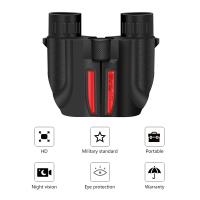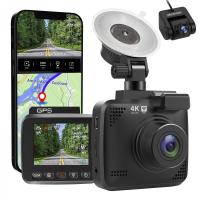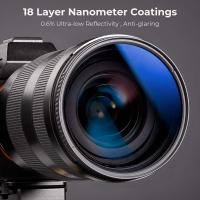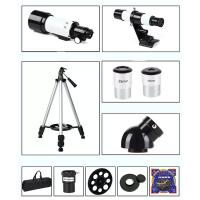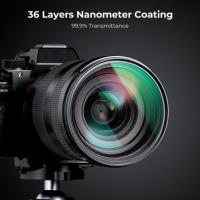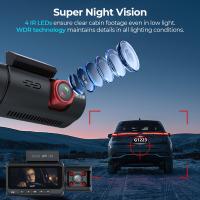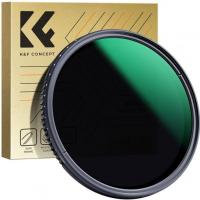What is the Best Metal Detector for Gold and Silver?
2024-08-15 07:58:43
Imagine the thrill of finding a hidden gold nugget or an old silver coin—these moments are what make metal detecting an exciting and rewarding hobby! Therefore, choosing the best metal detector for gold and silver is more than just a technical decision; it's about enhancing your treasure-hunting experience and maximizing your chances of uncovering valuable finds. Now, let's explore how to choose the best metal detectors for gold and silver!
Introduction to Metal Detectors for Gold and Silver:
How does a metal detector work for gold?
The entire workflow is divided into 5 steps:
1. Electromagnetic Field Generation;
2. Interaction with Metal;
3. Detection of Changes;
4. Higher Frequency and Sensitivity;
5. Audio or Visual Indicators output;
Metal detectors for gold and silver generate an electromagnetic field through a transmitter coil, which interacts with metal objects in the ground. When metal is detected, it creates eddy currents that generate a secondary magnetic field. This field is picked up by a receiver coil, which signals the presence of metal. Gold and silver detectors operate at higher frequencies to detect small gold nuggets and use the ground balance to adjust for mineralized soil interference. The best metal detector for gold and silver alerts the user with an audible tone or visual indicator when metal is found, helping identify and locate gold targets.
Where to look for gold with a metal detector?
Types of Gold to Find:
| Type of Gold | Best Locations | Additional Notes |
| Placer Gold | Rivers, streams, and areas with running water | Typically found in sediment and gravel beds |
| Gold Nuggets | Dry desert areas, beaches | Often found in areas with minimal vegetation |
| Raw Gold Ore | Rocky areas, mining regions | Requires tools like a pick or hammer for extraction |
| Costume Jewelry (Gold-Bearing Alloys) | Urban areas, parks, and beaches where items might be lost | Often found in places with high foot traffic |
Of course, for beginners using metal detectors, there are three recommended places to get gold and silver: riverbeds, beaches, and old towns.
Riverbeds: Riverbeds are one of the most popular sites for metal detecting. Riverbeds are one of the most popular sites for metal detecting. Additionally, many rivers were historically used to transport gold during mining operations so it stands to reason that there may be some left behind along the riverbanks or beds now.
Beaches: Beaches also offer an excellent opportunity to metal detect as they tend to attract people who bring items with them such as jewelry or coins which may have been lost or discarded at some point in time.
Old towns: Areas with potential historical significance such as abandoned mine sites, ancient settlements, and battlefields could potentially be sites of buried treasure or forgotten artifacts.
Key Features for Detecting Gold and Silver:
To choose the best metal detector for gold and silver, we need to consider some key features to find the best one that meets our requirements.
Frequency Range:
Gold Detection: Gold is typically detected better with higher frequencies (above 15 kHz). High-frequency detectors can pick up small gold nuggets more effectively.
Silver Detection: Lower frequencies (5-10 kHz) are usually better for detecting silver and coins.
Ground Balance:
Manual vs. Automatic: Manual ground balance allows you to adjust the detector to compensate for ground mineralization, which is particularly useful for gold prospecting. Automatic ground balance is convenient but may not be as effective in highly mineralized soils.
Discrimination:
Target Identification: Good discrimination features help differentiate between valuable metals like gold and silver and less desirable items like nails or trash.
Depth Capability:
Depth Settings: Deeper detectors are advantageous for finding larger or deeply buried objects, but they may be less effective at pinpointing smaller pieces.
Build Quality and Ergonomics:
Comfort: A detector that is comfortable to hold and easy to use will enhance your overall experience, especially during long searches.
Best Metal Detectors for Gold and Silver:
Nowadays, metal detectors for gold and silver are not only a tool for adults or professionals to explore treasures but also become a popular toy for parents to meet their children's exploration desires, so in order to meet the detection needs of different groups of people, we recommend several best detectors to meet different needs.
Best metal detector for children:
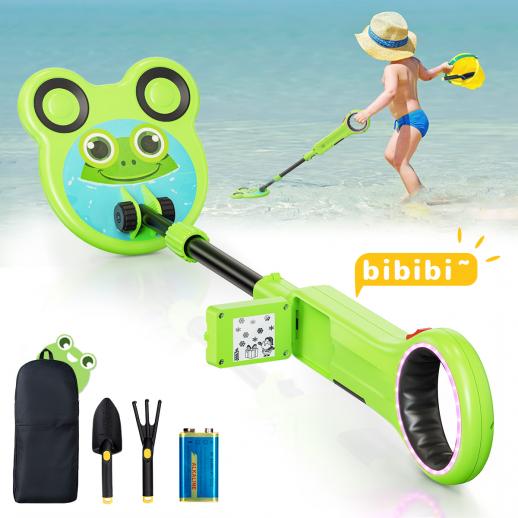
- 3 Fun Indicators & Detect All Metals;
- Cute Design & One-Click Operation;
- Cute Design & One-Click Operation;
- Deep & Accurate Detection;
- Safe Material & Perfect Gift For Kids;
It's a fun way for children to learn about history by finding cool stuff buried underground. Plus, they get to make friends with other treasure hunters and enjoy the fresh air and sunshine. It's all about having fun while exploring the great outdoors with the best metal detector for gold and silver designed for children!
Best beginner metal detector for adults:
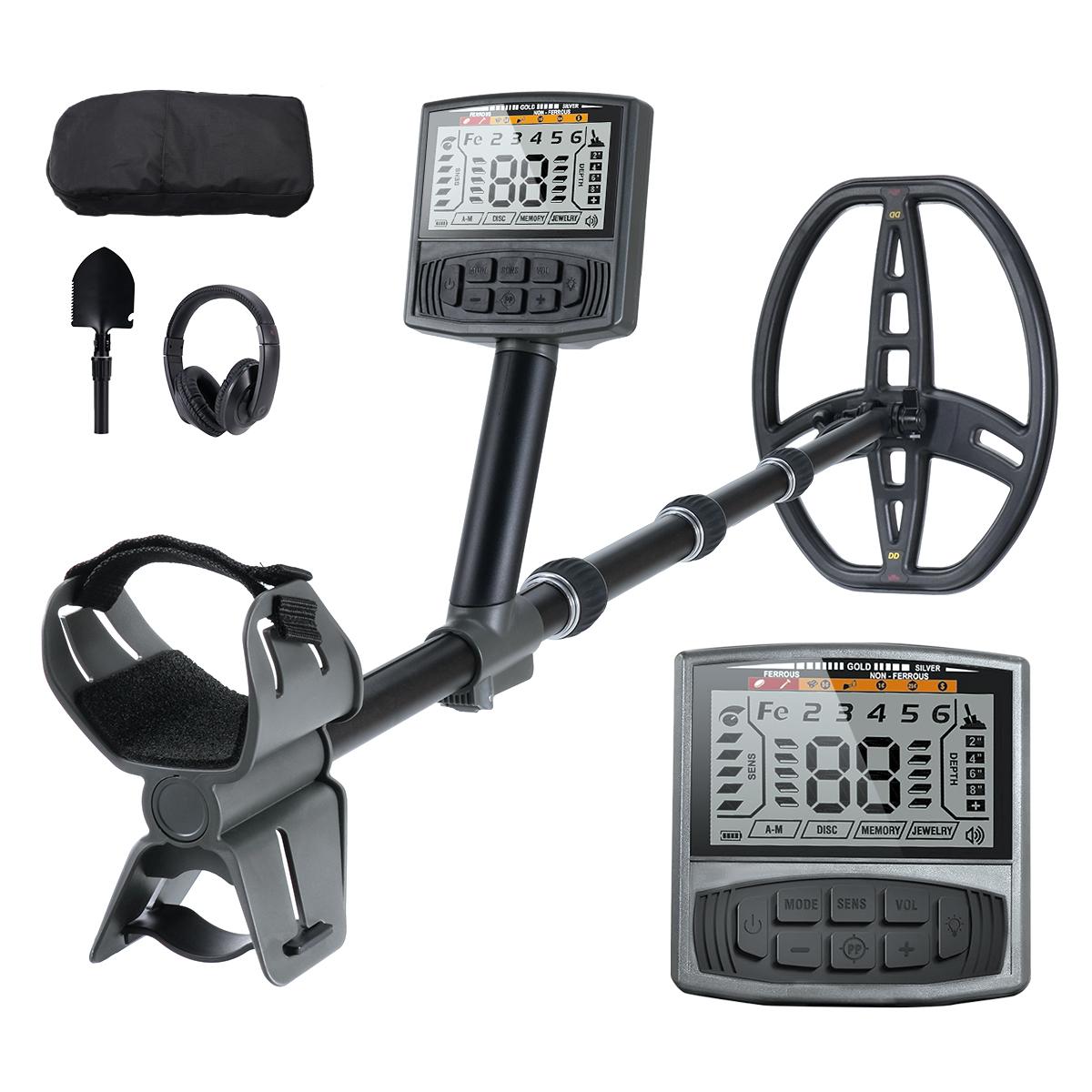
- 5 Detection Modes;
- Waterproof Metal Detector with Higher Accuracy;
- Intuitive LCD Display;
- Adjustable Height & Lightweight;
- Easy to Assembly;
Its user-friendly operation, rich array of features, and ergonomic design make it the perfect choice for anyone passionate about metal detecting. It is suitable as a gift for archaeologists, treasure hunters, security personnel, construction workers, and beach vacationers. Even if you're a novice, who just enjoys the thrill of discovery, this best metal detector for gold and silver is perfect for you.
Best professional metal detector for adults:
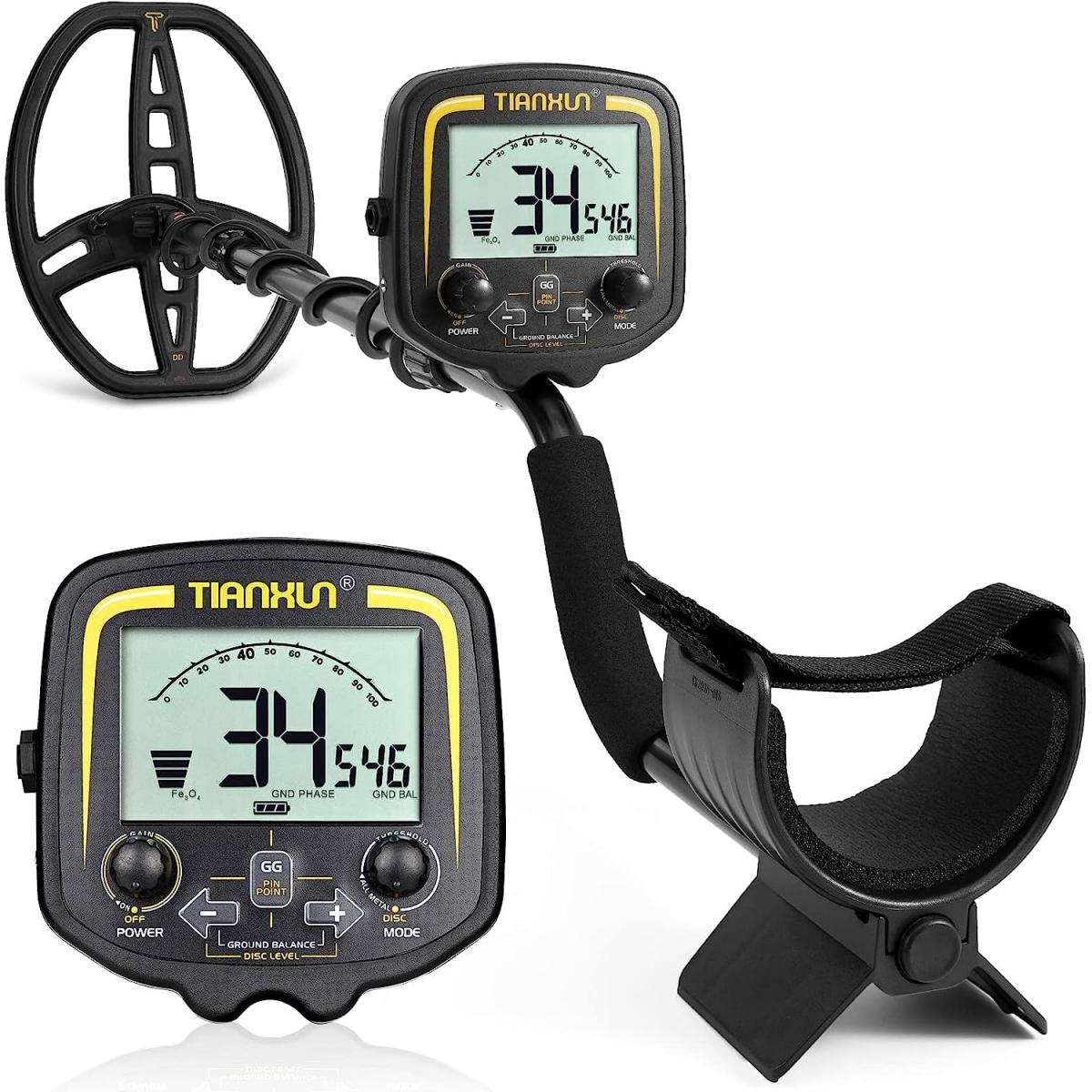
- High-precision metal detector;
- "DISC" intelligent mode;
- 3.5mm and 6.5mm universal headphone jack support;
- Intuitive LCD Display;
Best waterproof metal detector for gold and silver:
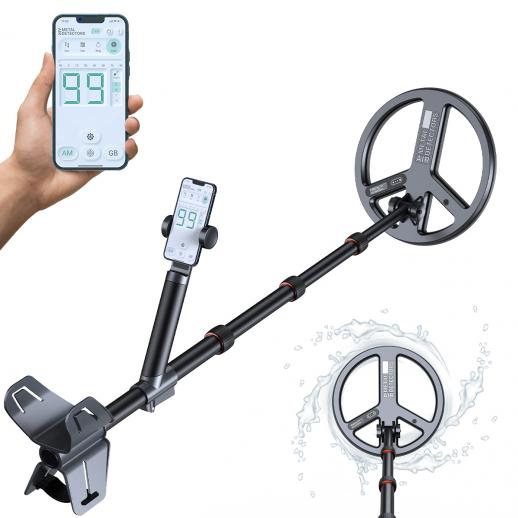
- Smartly Pairs with Your Phone;
- 3 Professional Search Ways;
- Detect Faster, Finer, Deeper;
- Compact, Portable, Easy Assembly;
- Fully Waterproof, Handle All Terrains;
Thanks to its wireless and no-control-box design, the underwater metal detector is whole-body waterproof. You can dive into deep water and hunt for hidden treasures. Packed with ground balance, recovery speed, and hot rocks compensation (auto or manually), the best waterproof metal detector for gold and silver conquers land, field, sea, relics, and everything in between with outstanding performance.
FAQs:
1. How to use a metal detector for gold?
· Select a Gold Detector: Choose a high-frequency detector designed for gold prospecting.
· Set Up the Detector: Adjust the settings, including ground balance and sensitivity, according to the soil conditions.
· Search Methodically: Sweep the detector slowly in a side-to-side motion, keeping the coil close to the ground.
· Dig Carefully: When you receive a signal, dig carefully to locate the gold. Recheck the hole and surrounding area to ensure no additional gold is missed.
2. How to read a metal detector?
· Listen for Tones: Different metals produce distinct audio tones. Familiarize yourself with the sound of gold versus other metals.
· Check the Display: Many detectors have a display showing the type of metal and depth. Refer to the manual for interpreting these readings.
· Use the Discrimination Feature: This feature helps filter out unwanted metals. Adjust it to focus on detecting gold.
3. What metals cannot be detected by a metal detector?
· Non-Metallic Materials: Metals like gold can be detected, but non-metallic substances such as plastic, wood, or ceramics cannot be detected.
· Extremely Low-Conductivity Metals: Some metals with very low electrical conductivity, like certain alloys or metals with heavy alloying, might be challenging to detect.

